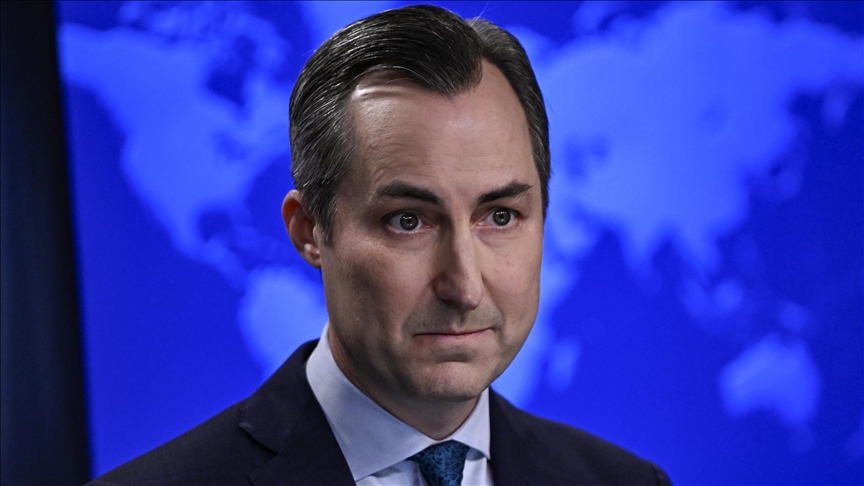Ex-US official says Washington knew Israel intended Gaza war to last for 'decades' without plan
Former State Department spokesman reveals Netanyahu government sabotaged Gaza cease-fire deal multiple times with ex-US officials confirming Washington knew but kept quiet

ISTANBUL
Washington was aware that Israel planned to continue fighting the Palestinians for “decades,” despite taking part in negotiations for a ceasefire in the Gaza Strip, former senior US officials involved in Biden-era talks.
Former State Department spokesperson Matthew Miller told Israel’s Channel 13 on Thursday that former Secretary of State Antony Blinken had warned Israel’s war cabinet early in the fighting that the country risked an endless insurgency without a clear plan about Gaza’s future.
"You’re right. We are going to be fighting this war for decades to come. That's the way it's been. That's the way it's going to be," Netanyahu reportedly responded.
Channel 13 said Netanyahu, along with National Security Minister Itamar Ben Gvir and Finance Minister Bezalel Smotrich, prevented prisoner exchange agreements with Hamas on at least five occasions.
Miller confirmed the findings, saying Washington was aware Israel was undercutting cease-fire efforts but remained quiet. “We had no broad mandate. At times it was zero,” said Miller, noting that conditions often changed abruptly, sometimes even as US envoys were boarding planes.
As the US pressed the Palestine resistance group to agree to a six-week cease-fire to avert Israel’s invasion of Rafah in April 2024, Netanyahu publicly pledged to strike Rafah “whether there was a ceasefire or not."
-'We were so close to getting a deal'
In May 2024, Biden disclosed the terms of a hostage deal, hours after Netanyahu approved it, seeking to prevent the prime minister from backtracking.
“We told the government of Israel only an hour or two before the speech because, frankly, we spent the last few months seeing the government of Israel, at times, try and sabotage an approach to get to a ceasefire, and we were determined not to let that happen here,” said Miller, explaining that the intention was to “box the prime minister in and made it very difficult for him to walk away from it.”
“There were times that we very much wanted to go public and make clear that we thought the prime minister was being completely intransigent and making it tougher to get a deal,” said Miller. “But we discussed it amongst ourselves, and we made the decision that it wouldn’t accomplish anything, we had seen it in a number of cases: (former Hamas leader Yahya) Sinwar pulled back from negotiations when he thought there was division between the United States and Israel.”
"We wanted to speak very toughly to the government of Israel behind closed doors, but ultimately not do anything that we thought would make it harder to get to a deal," he said.
Miller noted that Israel introduced extra demands about the Philadelphi Corridor in July 2024. By July 2024, Hamas had already accepted a US-mediated proposal, but Israel stalled for nearly a month as Netanyahu insisted on keeping troops along Gaza’s border with Egypt.
US officials described it as the most damaging turn, saying it derailed momentum toward an agreement.
"It is consistent with the pattern we saw for many months. They (Israelis) were always looking for ways to add conditions or make the terms more difficult," said Miller. "That maybe was the most frustrating of all, because we were so close to getting a deal that could have certainly brought hostages home and maybe ended the war once and for all.”
Channel 13 reported that in late 2024, Netanyahu set aside a breakthrough proposal from Israeli security agency Shin Bet, opting instead to wait for Donald Trump’s possible return to the White House.








